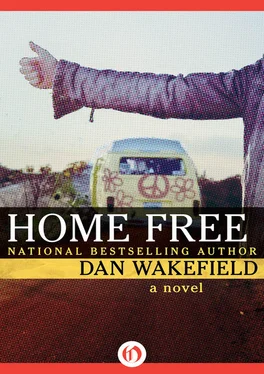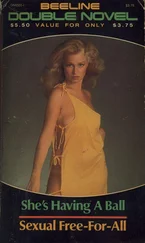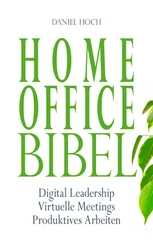“Where?” Lou asked
“Startin at this roadhouse I know just over the New Hampshire border, in Hudson. Near Nashua. We’ll go west into Vermont, then cross into northern New Hampshire, hit Bangor over in Maine and work our way down from there.”
“You really got it lined up?” Gene asked.
“Mostly, yeh, I just went up there, got commitments for most of the route.”
“How?” asked Lou.
“Shit, that’s where I sell siding. The boonies. I know all the little roadhouses, drink with the goddam managers. I told em this group was hot, they would pack in the customers. How the hell do they know? How the hell do I? I figure you put ‘ROCK GROUP’ in big letters after their name, who knows the difference? Then if they do pack em in, we get some good figures under our belt we can come back to Boston, build from strength.”
“Sounds great,” said Gene.
“Thank God I had the foresight not to put all my eggs into sports when I founded the N E A E A.”
“How do you mean?” asked Gene.
“You recall, the parent organization of the North American Curling League is the New England Athletic and Entertainment Association. In my management of Rasputin, I can use the same stationery. It comes under entertainment. Foresight. Somehow I knew, I sensed that sports was on the way out. Circuses, that’s what it is now. Besides, it doesn’t fit in with the spirit of the times. The spirit of the times is not competitive. Age of Aquarius and all. Spirit of harmony, love, expressed through music. Competition is out. Professional sports will soon be laughed off the fields and out of the stadiums. Who is a sure bet to fill Boston Garden on any given night—the Celtics or the Rolling Stones? Huh? Take your choice.”
Flash’s new career gave Gene inspiration. He knew he couldn’t pull off a Flash number, but maybe if he quit just looking at the ads, gave himself some time to think …
The second week of his job hunting Gene got dressed every morning in his suit which Lou always touched up on the ironing board the night before to do her bit, show him she wanted to help in his great career hunt; and after a flurry of preparing eggs-toast-coffee and listening to the news on the radio (a new habit which Gene felt lent his job-hunting campaign a sense of being on top of things) he strode off briskly to the corner of Mass Ave and Boylston where he purchased a Globe , folded it neatly, and tucked it under his arm the way the businessmen do, and with a cheerful whistle proceeded to the Prudential Center, where he spent the day.
He picked a comfortable chair in the Sheraton lobby for reading the paper—sports, comics, maybe some columns opposite the editorial page. He didn’t read the employment ads anymore. It had dawned on him they would always be essentially the same. There was simply no job he could stand that would also be approved by Lou. It was a puzzle to which he knew there had to be a suitable answer, one that was not to be found in the help wanted columns. It was something he had to solve on his own. All he needed was a little time and it would come to him.
The Pru was his headquarters. After the paper he rode the elevator up to the Skywalk, where you had a panoramic view of the whole city. Then he looked through the wonderful shops in the complex, the Saks Fifth Avenue and the Lord & Taylor, thinking which stuff would look good on Lou, had coffee at the Pavilion coffee shop, got a hamburger for lunch at Brighams, dropped into the Mermaid bar to catch a few game shows on the tube, went across the street to the Paperback Booksmith, and picked out a mystery he’d take back and read in the Sheraton lobby. Around four he’d hit the Mermaid again for a beer, watch “Bonanza,” and split just before the cocktail crowd. He walked back home with his brisk pace, hurried inside, threw off his coat and jacket, loosened his tie, and yanked off his shoes.
“Wow. Now I know what they mean by pounding the pavement.”
“Don’t worry,” Lou said, “it’ll happen.”
It did.
At the end of the second week of his life at the Pru Gene figured he couldn’t keep putting it off. He knew he could never stand sitting at a desk all day but that was the kind of job she wanted him to have, one where you had your name on the door and your Bigelow on the floor. But he figured maybe if he got the kind of job he liked at the kind of place she liked, she’d never know the difference. She told him there were lots of book publishers in Boston, and he could tell she thought that was good, a worthy thing to be into. As far as Gene could tell it would be just like any other kind of office job until it occurred to him if you published books you had to get them out to the stores. The books. You couldn’t just leave them lying around. You would have to put them in boxes and someone would have to move those boxes.
When Gene came home one night and told Lou he had landed a job at the venerable firm of Adams House, Publishers, she was overjoyed. He said he was in the training program. That’s why he had to buy a new suit.
Actually he was in the stockroom. But what the hell, he really did work for Adams House. He now had two suits and he alternated, wearing one of them to work every day. The other guys in the stockroom wore jeans and T-shirts and needled Gene about wearing a suit and tie. They called him “Diamond Gene.”
But upstairs his attire and pleasant manner drew favorable attention.
A lady editor whom Gene often saw dozing at her desk commissioned him to bring her black coffee every day at eleven and three. Word of his courtesy and efficiency spread, and he was given the responsibility of escorting the aged editor Shepard Hoskins to and from lunch at the Ritz every day, a journey that entailed walking through the Boston Common and the Public Garden each way.
When Gene was handed this assignment, he naturally wanted to know what to look out for. All he was told was that Hoskins was too old to go by himself.
“Does he fall down?” Gene asked.
“No,” the sleepy lady editor said, “he gets lost.”
“Ah.”
So every day Gene escorted Hoskins back and forth to his lunch at the Ritz.
He was gaining responsibility.
Lou would be proud.
The weather that spring was raw and scratchy, contentious and cold, smelling of mud and wounds.
No one made fires.
Now that he was a nine-to-fiver Gene didn’t feel like cooking much. Besides, he never knew when Lou might show. The war was taking more of her time. It was also making her thinner, more wan. What was her health till the war was won? Or lost, whichever it was she wanted. She missed meals entirely, forgetting insubstantial things, living on cigarettes, peanut butter, and zeal.
One night he came home after work and found her asleep, sprawled over test papers. He knew if he woke her and tried to get her out for a meal she’d refuse so he stealthily crept off and came back carrying a flat cardboard box hot to hold and steamy with wonderful smells so strong as to render a whole room woozy.
Gene sat the box down about a foot away from her, opened the lid, releasing the full force of the fragrance.
She made a small moan, moved, sniffed, blinked, woke.
“My God,” she said, “what’s happening?”
“Pizza.”
“With sausage-n-pepper?”
“With everything.”
They devoured the gooey mass in earnest silence, slurping, stuffing, dripping, demolishing the great mixed wonderful mess including all crust, then picking at crumbs as they had a can of beer, burping and sipping, satisfied.
Warm and full, Gene suggested they get out of their goddam rut, go somewhere—maybe up to Maine this weekend. They could grab a bus, get off where it looked good, get them some fried clams, climb around the rocks, breathe some good fresh cold ocean air. Change of scene.
Читать дальше












